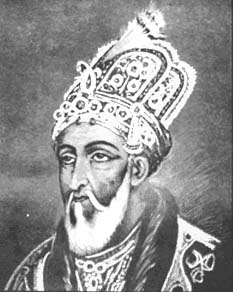Apr 19, 2024
Apr 19, 2024
https://www.boloji.com/articlephotos/Zafar's Poems.jpg It is rare for any powerful Emperor to have the time, intellect and knowledge, to reflect on the human condition. Marcus Aurelius and Ashoka stand out as rare geniuses, un-intoxicated by power and wealth, capable of turning their thoughts and lives towards philosophy and ethics. Zafar deserves a meritorious mention for having channeled his frustrations and failures into some of the most poignant pieces of poetry, to match the deep truths and analysis of human existence, like Shakespeare's works. The last Moghul Emperor was mostly a figurehead, denuded of true glory and power and bet his all on the wrong color at the casino of the Indian mutiny of 1857. He died a prisoner in Rangoon, blind and emasculated. He saw the need of every human to be loved and appreciated and the frustrating results of many human efforts. Like Buddha, he knew the inevitability of the pain of existence and less philosophically, without seeking a way out, accommodated to the reality of pathos with resignation without reprisals, blame or anger. While his resignation and submission may be consistent with the fatalistic vision of Islam and submission to the will of the Almighty, his poetry is most touching and eloquent about the laments and pathos of human existence.
It is rare for any powerful Emperor to have the time, intellect and knowledge, to reflect on the human condition. Marcus Aurelius and Ashoka stand out as rare geniuses, un-intoxicated by power and wealth, capable of turning their thoughts and lives towards philosophy and ethics. Zafar deserves a meritorious mention for having channeled his frustrations and failures into some of the most poignant pieces of poetry, to match the deep truths and analysis of human existence, like Shakespeare's works. The last Moghul Emperor was mostly a figurehead, denuded of true glory and power and bet his all on the wrong color at the casino of the Indian mutiny of 1857. He died a prisoner in Rangoon, blind and emasculated. He saw the need of every human to be loved and appreciated and the frustrating results of many human efforts. Like Buddha, he knew the inevitability of the pain of existence and less philosophically, without seeking a way out, accommodated to the reality of pathos with resignation without reprisals, blame or anger. While his resignation and submission may be consistent with the fatalistic vision of Islam and submission to the will of the Almighty, his poetry is most touching and eloquent about the laments and pathos of human existence.
I am going to use excerpts from one of his lesser known and two of his much-renounced Ghazals to portray his tragic vision of life. The lament is best illustrated by the words of a less known Ghazal,
Teere nazar se tu ne maaraa, laash utthai logonen
Shahr men jis din qatl hooa, id manai logonen
Kuch to mujhe badnaam kia, kuch aag lagai logonen
These words reflect the irony that unintended consequences of one's actions unpredictably and unintentionally become a benefit or burden to unrelated individuals and we are all insignificant minor trivia destined to buffeted by uncontrollable forces into Brownian movements with unpredictable and often undesirable consequences, totally unintended. It is best exemplified by a line from the same Ghazal that says "Mere surkh lahu se naa jaane kitne haathon men mehdi lagi" in a philosophical hope that a gruesome and tragic sacrifice may end up giving joy and means of celebration to others.
Still going on with lament but going into resigned knowledge without acceptance, we come to "Lagtaa nahi hai dil meraaa ujde dayaar men". In kiski bani hai aalamen we come to the same philosophical questioning as William Blake's "Tiger", where he questions the motives of the creator by posing the unethical query about what his motives were in creating an unfair universe and whether he created both the tiger and the lamb and what was his state of mind during each of these psychologically conflicting moments.
"Umare daraaz se maang kar laye the chaar din,
do arzoo men kat gaye, do intezaar men"
is the most eloquent poetry of the state of our lives, in which by prayer and entreaty we obtain a short existence, half frittered away in anticipation and the rest in waiting.
"Waiting for Godot" and Sartre's concept of hell in "No Exit" couldn't have put it better. His genius goes even one better. We hope for a loving union with our beloved (a metaphor of our hopes and dreams) during our lives, but in his maqtaa, he transcends ultimately. "Itnaa hai badnasib Zafar, do gaz zameen bhi na mili koye yaar men". "Not only were my dreams unfulfilled in life, but even in death, I couldn't get the expected fortune to be buried with my beloved and not even in the same street or address, a reflection of his exile in Rangoon, away from his native India."
Finally his peace and resigned acceptance of fate and fortune are revealed in his last masterpiece. "Naa men kisiki aankh kaa noor hun, naa kisike dil kaa surur. Jo kisiko kaam naa aa sake, men wo ik mushte-gubaar hun". I am the light of no one's eye and
the ecstatic intoxication of no heart, just a useless fistful of dirt, unwanted by anyone. Is there a better portrayal of the tragedy of human existence? "Naa to men kisikaa habib hun" and it goes on and on with unbelievable pathos, till it reaches its climax in resigned peace and acceptance with "Koi aake shammaa jalaaye kyun". Why should anyone weep for me?
Another poem about unselfishness is a Gujarati poem by R. V. Pathak, "Taari dhaak suni koi naa aave to eklo jaane re". Alone we come into this world and alone we leave, both times with empty hands, and much we think and crave for during life is vanity, an equally perishable and even more foolish unreality than our ephemeral existence.
19-Sep-2004
More by : Gaurang Bhatt, MD